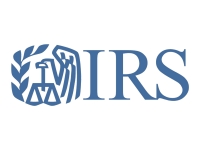How much money could I get from the stimulus?
Based on the legislation, the amount a person will receive is based on adjusted gross income, filing status, and number of children that qualify for the child tax credit. As outlined, single Taxpayers with an AGI of or less $75,000 or $112,500 or less if filing as the Head of Household on their most recent tax return should be eligible for $1,200. These taxpayers are also eligible for an additional $500 for each qualifying child under 17. Taxpayers who are married filing jointly and have an AGI of $150,000 or less should be eligible for $2,400 and an additional $500 for each qualifying child under age 17. The exact amount a specific taxpayer will receive is determined by the IRS. Have questions regarding the $2 trillion federal stimulus package? Take a look at our FAQs and use our Stimulus Calculator to see how much you may get.
Taxpayers with an AGI above these thresholds may also be eligible for stimulus funds under a “phase-out” calculation method. However, these calculations are more complex and are more dependent on individual circumstances. The phase-out is based on a taxpayer’s AGI, filing status, and number of children that qualify for the child tax credit. Single filers with income exceeding $99,000 and $198,000 for joint filers with no children are not eligible. Income such as wages, interest, self-employment income, pension income is all reported on the tax return and is part of the Adjusted Gross Income (AGI).
Many taxpayers don’t have to file a tax return because their only source of income is from Social Security benefits, Railroad Retirement Social Security Equivalent (RRTA) benefits, or Veteran’s Administration pensions. These individuals will still be eligible for a check; however, they will first need to file a simple tax return to receive the stimulus payment.
Besides income levels, are there other eligibility requirements that apply to receive funds from the IRS?
To be eligible to receive stimulus funds from the IRS, all taxpayers on the return must have a Social Security Number that is eligible for work in the U.S (eligible SSN). Additionally, all children must have an eligible SSN or an Adoption Taxpayer Identification Number (ATIN).
I owed taxes on my most recent return. What will my stimulus payment be?
The stimulus payment is not based on a refund or balance due to the IRS. Based on the legislation, the amount a person will receive is based on adjusted gross income, filing status, and number of children that qualify for the child tax credit.
The payment taxpayers will receive from the IRS represents a prepayment of a refundable credit on your 2020 tax return. If you are eligible for a higher stimulus payment than you had originally received, you will be provided the additional credit when you file your 2020 tax return. If you received more than you were eligible for, you will not have to pay the extra back to the IRS.
I owe a federal, state, or local taxing authority money. Will my stimulus check go straight to paying off that debt?
Under the legislation, any tax debt owed to the IRS or a state or local taxing authority is not allowed to be withheld from the Stimulus funds owed to taxpayers. However, delinquent child support payments that have been submitted by a State may be withheld from the Stimulus funds disbursed to a taxpayer.
How will I receive my stimulus payment?
The IRS plans to provide the stimulus payments to individuals and families by depositing funds directly into the same banking account reflected on the latest tax return filed. According to the latest guidance, the IRS will develop an online portal for individuals to provide their banking information, so they can receive payments through direct deposit instead of a check in the mail.
When will I receive my stimulus payment?
On March 30, the IRS indicated that they will begin distributing stimulus payments within three weeks after the announcement.
How will the IRS know where to send my payment?
The vast majority of people do not need to take any action. The IRS will calculate and automatically send the economic impact payment to those eligible.
For people who have already filed their 2019 tax returns, the IRS will use this information to calculate the payment amount. For those who have not yet filed their return for 2019, the IRS will use information from their 2018 tax filing to calculate the payment. The economic impact payment will be deposited directly into the same banking account reflected on the return filed.
How will my income be determined for the stimulus payment?
The IRS will determine the amount owed under the stimulus payment based on a review of your mailing address, filing status, number of eligible dependents, and Adjusted Gross Income (AGI). If you have filed your 2019 taxes, the government has the most up-to-date information on you. AGI is an individual's gross taxable income from payments such as wages, self-employment income, and pension income. AGI also includes all above the line deductions such as student loan interest and IRA and HSA contributions.
What do I do if I still need to file my taxes?
If you need to file your 2019 taxes, you can still have a Tax Pro file your taxes in these unprecedented times. In some areas, stores remain open and we’re following local and national health guidance to stop the spread of Covid-19. We’re also booking by appointment only and clients should confirm the appointment time with the location before arrival. Walk-ins would be available only if there is no one already waiting in the location. We also have document drop-off and upload to MyJH to limit time in an office. Clients who want to or need to stay home can use Jackson Hewitt Tax Pro From Home to have a Tax Pro file their return without ever coming into an office.
What’s Next
Additional information on state and federal responses to the Coronavirus pandemic can be found on the IRS’ Coronavirus Tax Relief page. The IRS is processing tax returns and providing refunds to Americans in the same time frame as always. As taxpayers lose jobs and work limited hours from home during this crisis, additional funding is as critical as it has ever been. Book an appointment today and let’s get your maximum refund as quickly as possible.








